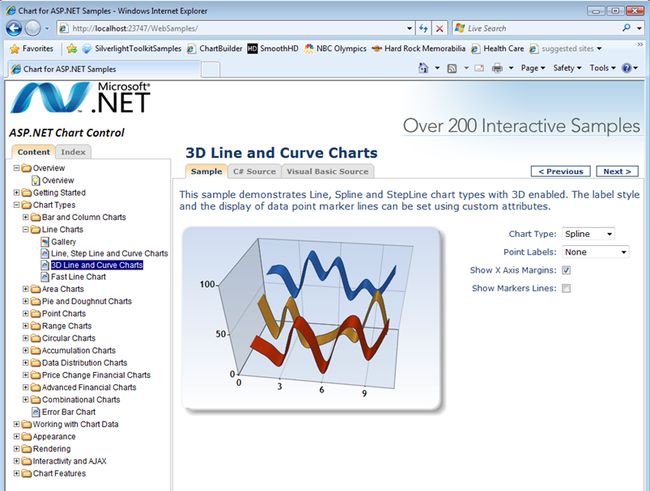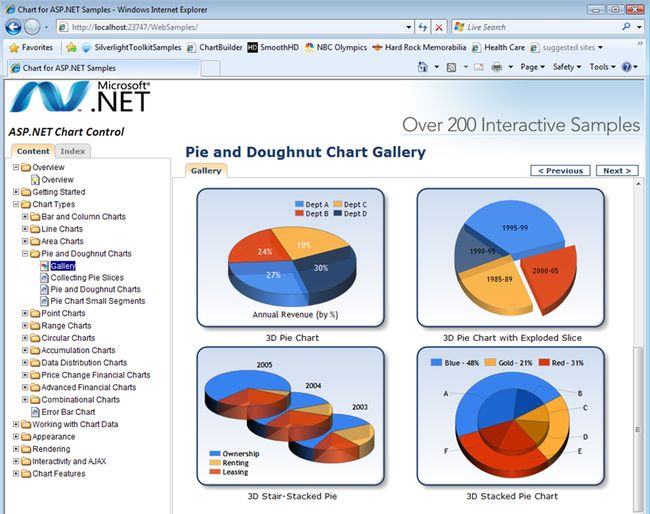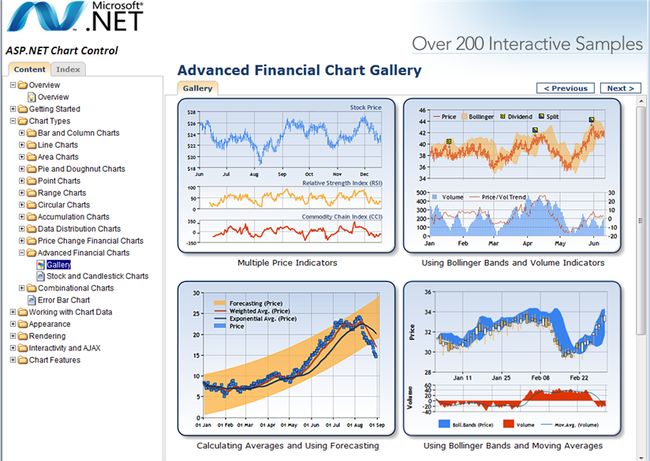新ASP.NET图表控件
Microsoft recently released a cool new ASP.NET server control - <asp:chart /> - that can be used for free with ASP.NET 3.5 to enable rich browser-based charting scenarios:
- Download the free Microsoft Chart Controls
- Download the VS 2008 Tool Support for the Chart Controls
- Download the Microsoft Chart Controls Samples
- Download the Microsoft Chart Controls Documentation
- Visit the Microsoft Chart Control Forum
Once installed the <asp:chart/> control shows up under the "Data" tab on the Toolbox, and can be easily declared on any ASP.NET page as a standard server control:
<asp:chart /> supports a rich assortment of chart options - including pie, area, range, point, circular, accumulation, data distribution, ajax interactive, doughnut, and more. You can statically declare chart data within the control declaration, or alternatively use data-binding to populate it dynamically. At runtime the server control generates an image (for example a .PNG file) that is referenced from the client HTML of the page using a <img/> element output by the <asp:chart/> control. The server control supports the ability to cache the chart image, as well as save it on disk for persistent scenarios. It does not require any other server software to be installed, and will work with any standard ASP.NET page.
To get a sense of how to use the <asp:chart /> control I recommend downloading the Microsoft Chart Controls Sample Project. This includes over 200 ASP.NET sample pages that you can run locally. Just open the web project in VS 2008 and hit run to see them in action - you can then open the .aspx source of each to see how they are implemented.
The below example (under Chart Types->Line Charts->3D Line and Curve Charts) demonstrates how to perform Line, Spline and StepLine charting:
The below example (under Chart Types->Pie and Doughnut Charts) demonstrates a variety of pie and 3D doughnut options:
The below example (under Chart Types->Advanced Financial Charts) demonstrates some graph charts:
In addition to the above samples, you can download the Microsoft Chart Control Documentation or ask questions on the Chart Controls Forum to learn more.
This should provide a useful (and free) addition to your standard ASP.NET toolkit of functionality, and enable you to easily add richer visualization and data workflow scenarios to your ASP.NET applications.
Hope this helps,



